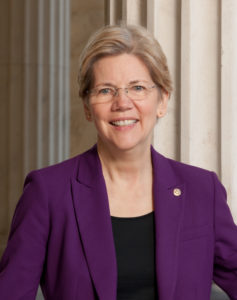How the Democratic Candidates Say They Will Address Healthcare Disparities
As we move through the primaries, Higher Heights for America is committed to providing Black women with the information they need to make informed decisions at the polls. Our recently launched, “Lunch and Learn” Series Where They Stand: Our Voices, Our Issues was designed to ensure you know where each candidate stands on key issues affecting your life and community, so over the next few weeks, we will highlight their responses to some of the most critical issues covered in our recent candidates questionnaire.
Healthcare topped the list of concerns that Black women identified as key voting issues in a Higher Heights poll taken at the beginning of the 2020 election season. Our candidates questionnaire allowed the Democratic presidential contenders to tell us in their own words how they plan to address this concern. The broad-reaching query explored candidates’ positions and proposed policies for reducing healthcare costs, improving access, and addressing disparities in services and outcomes.
Black women across all economic levels are at greater risk for life-threatening child birth complications and breast cancer related deaths, so this week we take a deep dive into the Democratic presidential candidates’ commitment to addressing healthcare disparities. Here in their own words is how the candidates say they will address these and other disparities if elected.
The question put to the candidates:
How does your plan address the myriad of disparities–including chronic illness, underdiagnosing of illness, heart disease, mental health, access and affordability– that negatively impact the health and well-being of Black women?

Joe Biden
I believe that access to affordable, quality healthcare is a right no matter your race, gender or zip code. I will address the disparities in healthcare that negatively impact the well-being of Black women. My plan, as previously described, will improve access and affordability. I will redouble efforts to ensure enforcement of mental health parity laws and expand funding for mental health services. Studies tell us that communities of color face higher rates of mental health stigma, and African Americans are 20% more likely to experience serious mental health challenges.
I will double our investment in community health centers, expanding access to high quality healthcare for the populations that need it most. In 2015, 59% of patients at community health centers were people of color and one quarter were uninsured. And, I will increase the number of women of color graduates from HBCUs who enter healthcare.
I will reduce our nation’s unacceptably high maternal mortality rate, which disproportionately affects women of color. Compared to other developed nations, the U.S. has the highest rate of deaths related to pregnancy and childbirth, and we are the only country experiencing an increase in this death rate. This problem is especially prevalent among Black women, who experience a death rate from complications related to pregnancy that is more than three times higher than the rate for non-Hispanic White women. California came up with a strategy that halved the state’s maternal death rate. I will take this successful collaborative approach nationwide.
 Pete Buttigieg
Pete Buttigieg
A critical part of my plan is launching an inter-agency National Health Equity Strategy. This strategy will prioritize anti-racism and be undergirded by the belief that quality health outcomes should be the norm for every American, regardless of race, place, income or even access to healthcare. I will designate and fund Health Equity Zones to address communities’ most pressing health disparities, especially in communities with histories of redlining and economic and social marginalization. These Health Equity Zones will support the identification, development, implementation, and monitoring of plans tailored to address local health inequities. Building from early models like Accountable Communities for Health, these Health Equity Zones will create multi-sector coalitions focused on health equity and closing health disparities, and reflect the fundamental economic, social and political determinants of health in a community.
In addition, I will revitalize the Office of Civil Rights in the Department of Health and Human Services to ensure that frameworks are in place to address health inequities, promote equal access and prohibit discrimination; that agencies explicitly consider racial impact in their regulatory decisions and rule-making; and that legal recourse and enforcement is readily available to people and communities in order to protect these basic human rights.
I will also work to end the maternal health crisis that we face and ensure that Black mothers have equal access to high-quality care. In my Rural Health Plan, we address the need to increase the number of health professionals providing maternal and obstetric care and to train non-obstetricians, such as family physicians, midwives and general surgeons, to provide obstetric care. I will also support passage of the MOMMA Act, Maternal CARE Act, MOMS Act and MOMMIES Act to achieve needed reforms like requiring training to address implicit bias and racism in hospitals and other healthcare settings, expanding Medicaid coverage for one year postpartum, and expanding evidence-based programs shown to reduce disparities in pregnancy outcomes.
Finally, I will increase Medicare reimbursement rates—and encourage states to increase Medicaid reimbursement rates—for providers working in medically underserved areas, including rural areas, where racial health disparities are particularly acute. We will also address the underrepresentation of Black Americans in the health workforce and train our current health workforce to combat bias–especially racial bias–when treating patients.
 Amy Klobuchar
Amy Klobuchar
As president, Senator Klobuchar will address persistent racial disparities in healthcare and health outcomes. She will invest in research into health disparities and how these disparities can be reduced, including when it comes to chronic illness, heart disease, mental health, and maternal care. Senator Klobuchar will also immediately implement a new law that tackles the shortage of maternity care health professionals—including nurses, midwives, and obstetricians—in underserved areas, and she will develop best models of care and promote training to address racial disparities in maternal and infant mortality.
Senator Klobuchar has also committed to preventing, treating and facilitating a cure for Alzheimer’s disease, with the goal of putting us on a path toward developing a cure and treatment by 2025. To support researchers, she will make sure that funding is reliable and consistent. Since African Americans and the Latino community will represent nearly 40 percent of the 8.4 million American families affected by Alzheimer’s disease by 2030, Senator Klobuchar will increase federal research into disparities in the incidents and outcomes of Alzheimer’s and other forms of dementia.
Senator Klobuchar is also deeply committed to improving access and affordability of healthcare to help address racial health disparities. That means reducing costs of healthcare and prescription drugs, expanding access, outreach and enrollment, increasing and expanding premium subsidies, providing immediate relief for co-pays and deductibles, and providing significant additional incentives to push states to adopt the Medicaid expansion.
Senator Klobuchar also believes that mental health is as important as physical health, and as one of her first major policy proposals as candidate for president she released a plan to prioritize mental health and address racial disparities in mental healthcare. That means launching new prevention and early intervention initiatives, expanding access to treatment and building a healthcare system that integrates mental and physical healthcare by enforcing federal laws like the Affordable Care Act and the Wellstone-Domenici Mental Health Parity Act that she helped pass to ensure health insurance companies cover all mental illnesses and substance use disorders in the same way they do physical illnesses.
Research also suggests that there are significant racial and ethnic disparities in the quality of long-term care as well as disparities in coverage for long-term care. Senator Klobuchar is committed to tackling disparities in care through expanding access to long-term care with a focus on reducing inequities as well as addressing the costs of long-term care services for people in the greatest need of assistance.

Bernie Sanders
We will not only guarantee healthcare to all as a right with Medicare for All, we must also end the long-standing racial disparities that exist within America’s healthcare system and workforce. Far too many Black Americans have died as a result of these injustices and there is no time to wait for racial justice and healthcare for all. When we are in the White House, we will address the need for more Black doctors, more Black dentists, more Black nurses, and more Black mental health providers who can provide the care that is so desperately needed in their communities.
We’ll significantly expand the National Health Service Corps, Community Health Centers, and Teaching Health Centers to bring more doctors and nurses of color to underserved areas. We will increase the number of nurses, nurse practitioners, and physician assistants and allowing them to practice at the top of their license in order to increase the number of practitioners of color to provide culturally competent care in the communities they serve.
We’ll address the fact that in the U.S., Black women are three and a half times more likely to die from pregnancy than White women. The research from experts is clear: to solve our maternal mortality crisis, we need to address uninsurance. When Bernie is in the White House, he’ll enact Medicare for All, which will guarantee healthcare, including quality maternal healthcare, as a human right to everyone in America, free at the point of service.
 Tom Steyer
Tom Steyer
The ability to access the care one needs is foundational to our sense of safety and possibility. It is key to our economic prosperity. I understand that different communities face different healthcare needs. For too long, tribal nations, women, veterans, rural communities, people with disabilities, and communities of color have been denied a full suite of healthcare services.
My administration will address long-standing racial inequities in the healthcare system, as a core part of all health plans.
My plan will ensure the vitality of community healthcare systems, including those in rural and low-income areas, by targeting additional resources to rural hospitals, encouraging community health centers, and investing in telemedicine. It will ensure that every kid in America has access to dental and eye care, as well as fight the opioid and mental health crises with billions of additional dollars for new and innovative programs. Together, we can create a better healthcare system that delivers better outcomes for patients in terms of physical health, mental health, and social belonging as core metrics of an improved healthcare delivery system.

Elizabeth Warren
Tackling health disparities requires more than healthcare solutions. I have released a wide range of plans that aim to reduce disparities from every angle–protecting all women’s right to choose when and how they start a family, taking on the high rates of maternal mortality, increasing access to safe and affordable housing, reforming our criminal justice system, expanding Social Security and much more.
When it comes to health, Black women have long experienced worse outcomes than their White counterparts and are disproportionately uninsured. Medicare for All addresses these coverage gaps. Everyone gets coverage. Everyone can see the doctor they need. Nobody goes broke.
Black communities also experience provider shortages and live in medically underserved areas. I have a plan to increase funding for Community Health Centers by 15 percent per year over the next five years, establish a $25 billion dollar capital fund to improve access to care in health professional shortage areas, increase the cap on medical residencies by 15,000 over five years, and target residency placements in medically-underserved areas. I will also expand the National Health Service Corps’ loan repayment programs to cover full loan repayment for 5 years of service.
We must also ensure that doctors listen to Black women. Decades of structural racism and discrimination mean that, too often, doctors and nurses don’t hear Black women’s health issues the same way they hear them from other women. My approach would apply successful reforms to maternity care by setting one price for an entire “episode” of care and holding health systems accountable for the outcome. We will also identify and invest in healthcare providers that are struggling.
Access to mental healthcare is a huge challenge for Black women and their families. While Medicare for All will help significantly, we also need to address mental health in our justice system. For the exact same crimes, Black Americans are more likely than Whites to be arrested, charged, wrongfully convicted, and given harsher sentences. We must decriminalize mental health crises and invest in diversion programs for substance use disorder. Medicare for All will provide continuous access to critical mental healthcare services, but I’ll also increase funding for “co-responder” initiatives that connect law enforcement to mental healthcare providers and experts.